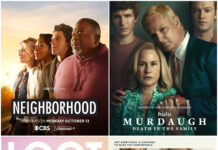The streets of Twitter are buzzing about the Netflix documentary, “Tell Them You Love Me.”
About ‘Tell Them You Love Me’
This film delves into the controversial relationship between a married white professor and her Black, nonverbal student with cerebral palsy, Derrick Johnson.
Directed by Nick August-Perna and executive produced by Louis Theroux and Arron Fellows, the documentary explores disability rights and the complexities of consent and power dynamics.
“Tell Them You Love Me” details the true story of Anna Stubblefield, a former ethics professor at Rutgers University-Newark, and Derrick Johnson, who she met through his brother, John Johnson.
John approached Stubblefield in 2009 for help with Derrick’s communication skills.
With Stubblefield’s assistance, Derrick began using a keyboard with an LED screen to communicate and even started taking a university class.
Over time, Stubblefield claimed that she and Derrick fell in love and engaged in a consensual sexual relationship.
However, Derrick’s mother, Daisy Johnson, vehemently disagreed, asserting that her son lacked the capacity for consent and that Stubblefield manipulated his communication to suit her narrative.
The controversy ignited a national debate on disability, consent, race, and facilitated communication.
Facilitated communication, or FC, is a discredited method where a facilitator supports a person with disabilities to type or point to letters and pictures.
Critics argue that the messages produced are often those of the facilitator rather than the individual.
The American Speech-Language-Hearing Association (ASHA) and other organizations have rejected FC due to a lack of scientific evidence supporting its validity.
“Tell Them You Love Me” is a powerful film that invites viewers to consider the moral implications of communication and consent, especially in the context of disability and race.
Watch the trailer below.
Twitter Reactions
Read 25 totally accurate tweets about “Tell Them You Love Me” below.
“Tell Them You Love Me” is currently streaming on Netflix.
Have you watched the documentary?













